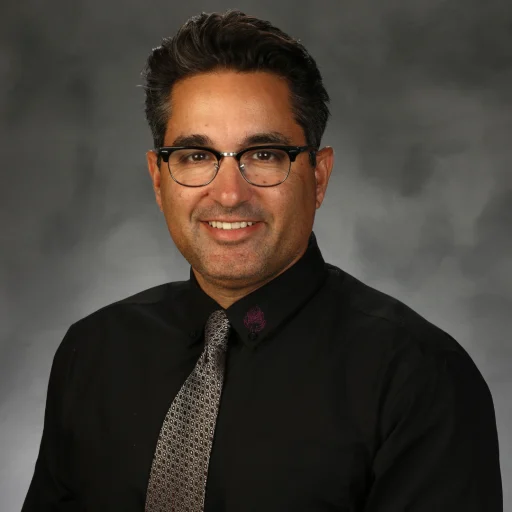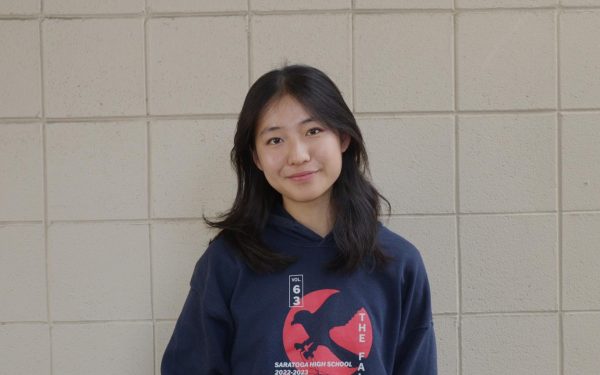Since 2012, the MSET Robotics team has hosted an annual FTC qualifier at the school, where around 24 teams compete to earn a spot in the NorCal Regionals tournament. This year, the tournament hosted 22 teams, resulting in around 275 to 320 students attending on Dec. 4.
Hosting a competition with so many attendees required planning several weeks in advance by four main organizers: MSET adult mentors Vipin Jain, Sheeba Garg and Keerti Melkote and FIRST liaison Dianne France. Together, they planned the date, organized the venue and arranged for volunteers to perform various jobs at the tournament.
As tournament director, Melkote arranged for around 60 volunteers, most of whom were MSET students and parents, to register for important roles like volunteer coordinator, safety inspector and scorekeeper. Because several crucial volunteer roles require certification training, they are signed up well in advance, around three weeks before the actual event.
Senior Cuttlefish hardware member Emily Lu volunteered as a queuer for both matches and judges interviews at the event, which she found provided an opportunity for newer MSET members to experience a true tournament, scope out the competition — such as first place team Innov8rz from Fremont — and preview strategy formation.
By watching the progression of matches and their various strategies, rookies can gain insight on the chaos and procedures involved in actual gameplay while gaining confidence on their designs.
“As a traditionally strong team, people have really high expectations for us, so seeing other robot designs and their competition strategies early on helps lower that pressure, especially since this tournament occurs relatively early in the season,” Lu said.
For Melkote, the most difficult volunteer roles to fill were judges, who require expertise to interview teams about their robot and their outreach to determine who receives a multitude of different awards. Since judges need to be unaffiliated (no relation to competition participants), do a reasonable job judging and to commit for the full-day competition, identifying viable candidates was hard.
As for the other volunteer roles, a majority of them were open to any students; however, MSET students were given priority so that they can familiarize themselves with the competition setting. Because the event occurs relatively early in the season, Melkote strived to plan a successful tournament where teams could evaluate their own performance, and compare it with other teams.
“Saratoga is a prestigious event, even though it’s a qualifier,” Melkote said. “People want to come to compete here because only teams that have accomplished a certain level of robot functionality can participate, so we tend to attract the higher-level teams.”
The day before the event, the fields, pits, projectors and other important infrastructure were set up in around two and a half hours so the competition could start off without a hitch. However, as matches started after the opening ceremony, the pace of the tournament rapidly increased, along with the importance of attentive volunteers.
“Now that we are queuing, if any one thing is out of whack, then the tournament gets delayed,” Melkote said. “So running a smooth operation that day [was] the highest priority for me, just to keep it running at a level so it remains a prestigious venue for people to come to.”
Since this was only Melkote’s second year as tournament director, and his first year was during the pandemic, where only 16 teams were allowed to compete, the additional 8 teams this year were a completely new experience for him. Nevertheless, he aimed to direct a fruitful tournament for both teams and volunteers and was satisfied with the result.
“It fulfilled all my expectations in terms of how smoothly it ran, the participants, volunteers and everything came together very nicely,” Melkote said.
Although Melkote wishes that the two no-show teams had attended, the reduced number of competitors had little effect on the tournament, with the competition schedule generated after robot inspection. However, he said a full slate of 24 teams would have created a bigger crowd with more spectators which would have made the event more fun for participants.
“It’s not about winning,” Melkote said. “It’s really about participating, learning and keeping that growth mindset by ensuring that you take every piece of learning that you can get and keep getting better as you move forward.”































